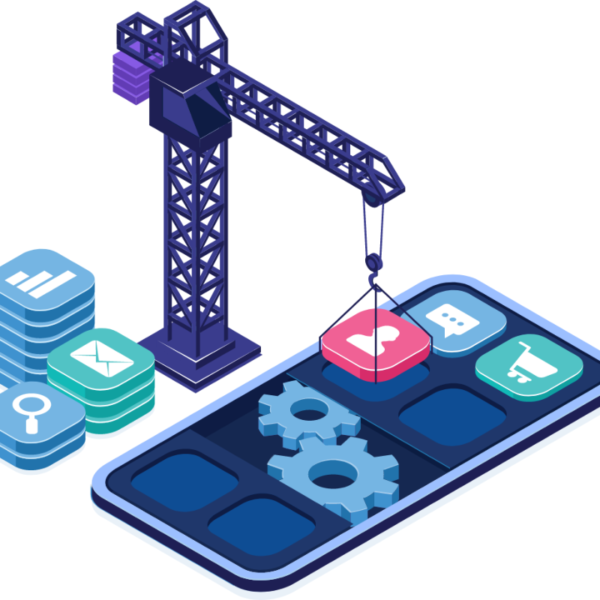
ensuring data security and compliance with regulations is paramount for any business using billing software. Not only is sensitive customer data at risk, but businesses also face severe penalties if they fail to comply with regulations. So, how does general billing software keep data secure and ensure compliance? Let’s dive in.
Understanding Data Security in Billing Software
Data security refers to the practices and technologies used to protect sensitive information from unauthorized access, theft, or damage. In the context of General Medical Billing Clinics software, data security is crucial because it deals with personal and financial information that, if compromised, could lead to significant harm to both customers and businesses.
Key Components of Data Security
To ensure robust data security, billing software incorporates several critical components:
Encryption
Encryption transforms data into a secure format that can only be read by someone with the proper decryption key. This ensures that even if data is intercepted, it remains unreadable to unauthorized parties.
Access Control
Access control mechanisms ensure that only authorized users can access sensitive information. This includes technologies like role-based access control (RBAC) and multi-factor authentication (MFA).
Regular Audits
Regular security audits help identify and rectify vulnerabilities within the system. These audits are essential for maintaining a secure environment and ensuring continuous compliance with regulations.
Encryption Techniques Used in Billing Software
Encryption is a cornerstone of data security. Billing software typically uses two types of encryption:
Symmetric Encryption
Symmetric encryption uses the same key for both encryption and decryption. It is fast and efficient, making it ideal for encrypting large amounts of data.
Asymmetric Encryption
Asymmetric encryption uses a pair of keys – a public key for encryption and a private key for decryption. It is more secure than symmetric encryption, but it is also slower, making it better suited for encrypting smaller amounts of data.
Benefits of Encryption: By encrypting data, billing software ensures that even if data is intercepted or accessed unlawfully, it cannot be read without the decryption key. This adds a crucial layer of security.
Access Control Mechanisms
Role-Based Access Control (RBAC): RBAC restricts system access to authorized users based on their roles within the organization. For instance, a cashier might have access to billing functions but not to sensitive financial reports.
Multi-Factor Authentication (MFA): MFA requires users to provide two or more verification factors to gain access. This could include something they know (password), something they have (security token), or something they are (fingerprint).
Regular Security Audits
Security audits are vital for identifying weaknesses and ensuring that security measures are effective. They typically cover:
- Vulnerability Assessments: Identifying potential vulnerabilities in the system.
- Penetration Testing: Simulating attacks to test the effectiveness of security measures.
- Compliance Reviews: Ensuring that the system adheres to relevant regulations and standards.
Compliance with Data Protection Regulations
Billing software must comply with various data protection regulations to avoid hefty fines and legal consequences. Here are some of the key regulations:
GDPR Compliance
The General Data Protection Regulation (GDPR) is a comprehensive data protection law that applies to businesses operating in the EU or dealing with EU citizens. Billing software ensures GDPR compliance by:
- Data Minimization: Collecting only the data necessary for processing.
- User Consent: Obtaining explicit consent from users before collecting their data.
- Right to Access: Allowing users to access and modify their data.
- Data Breach Notification: Informing users and authorities of any data breaches promptly.
HIPAA Compliance
The Health Insurance Portability and Accountability Act (HIPAA) sets standards for protecting sensitive patient information. Billing software ensures HIPAA compliance by:
- Data Encryption: Encrypting patient information to protect it from unauthorized access.
- Access Controls: Implementing stringent access controls to limit who can access patient data.
- Audit Logs: Keeping detailed logs of who accesses patient information and when.
Other Relevant Regulations
PCI DSS
The Payment Card Industry Data Security Standard (PCI DSS) applies to companies that handle credit card information. Billing software meets PCI DSS standards by:
- Encrypting cardholder data.
- Maintaining secure systems and applications.
- Regularly monitoring and testing networks.
SOC 2
Service Organization Control 2 (SOC 2) is a standard for managing customer data based on five “trust service principles”: security, availability, processing integrity, confidentiality, and privacy. Billing software ensures SOC 2 compliance by adhering to these principles Mips Measures 2024.
Data Privacy Features
To enhance data privacy, billing software often includes features like:
- Anonymization and Pseudonymization: Techniques to protect individual identities by removing or altering personal identifiers.
- Data Minimization: Collecting only the information necessary for the specific purpose, thereby reducing the risk of data breaches.
User Training and Awareness
User training is crucial in maintaining data security. Billing software aids in user education by:
- Providing training modules on data security best practices.
- Ensuring users understand how to use security features effectively.
- Raising awareness about the importance of data protection and regulatory compliance.
Incident Response and Management
Even with robust security measures, breaches can occur. Effective incident response involves:
- Immediate Containment: Quickly containing the breach to prevent further damage.
- Investigation: Identifying the cause and extent of the breach.
- Notification: Informing affected users and relevant authorities.
- Remediation: Implementing measures to prevent future breaches.
Future Trends in Billing Software Security
The future of billing software security is promising, with emerging technologies offering enhanced protection:
- AI and Machine Learning: These technologies can predict and detect security threats in real-time, allowing for faster response.
- Blockchain Technology: Blockchain provides a decentralized and tamper-proof way to record transactions, significantly enhancing security.
Conclusion
Data security and regulatory compliance are non-negotiable for billing software. By incorporating robust encryption, access controls, regular audits, and adhering to regulations like GDPR and HIPAA, billing software ensures that sensitive data remains protected. As technology evolves, so too will the methods for securing data, ensuring that businesses can stay ahead of potential threats.
FAQs
What are the main threats to billing software security? The main threats include hacking, phishing attacks, insider threats, and malware. Each of these can compromise sensitive data and disrupt business operations.
How often should security audits be conducted? Security audits should be conducted at least annually, but more frequent audits may be necessary depending on the sensitivity of the data and the regulatory environment.
Can small businesses afford secure billing software? Yes, there are many affordable billing software options designed for small businesses that offer robust security features to protect data and ensure compliance.
What is the role of encryption in data security? Encryption protects data by making it unreadable to unauthorized users, ensuring that even if data is intercepted, it cannot be accessed without the decryption key.
How do billing software updates impact compliance? Regular updates are crucial for compliance as they often include patches for security vulnerabilities and updates to ensure adherence to the latest regulatory requirements.










